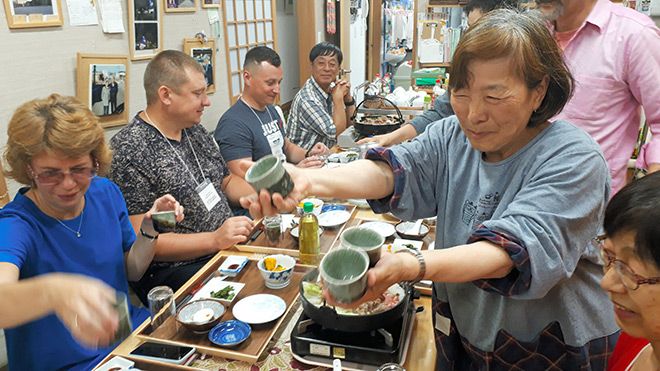The JR Joban Line’s northbound train rumbled along the coast of Fukushima Prefecture.
I got off the train at Odaka Station in the city of Minami-Soma, walked across the deserted open space in front of the station, and arrived at the Futabaya Ryokan inn close by.
About 15 kilometers from the Fukushima No. 1 nuclear power plant operated by Tokyo Electric Power Co., this neighborhood was evacuated by government order in the immediate aftermath of the March 2011 nuclear disaster.
It remained a ghost town for the next five years.
An area map hung on a wall of the inn. It was hand-drawn by local residents who took it upon themselves to measure the levels of radiation in the area every year and marked their findings on the map in red and blue.
“The government would never bother to conduct any thorough survey, so we decided we had to do it on our own,” said Tomoko Kobayashi, 72, the inn’s soft-spoken, fourth-generation proprietor.
On the day the Great East Japan Earthquake struck, violent jolts were followed by a deadly tsunami.
On the following day, locals heard a loud, booming sound and were told to flee quickly because the nuclear power station appeared to be in serious trouble.
Until then, the residents had always been assured of their safety. But how unfounded that promise proved to be. And how frightening it must have been to realize that in a flash.
Surely, we were all made painfully aware in March 2011 that, wherever we were in the country, we could no longer remain so naive as to talk about safety or danger in simple terms.
And yet, what is all this frenetic motion that’s going on now?
In an energy policy about-face, the government has changed course to “maximum utilization” of nuclear power and scrapped its policy of “reducing the nation’s reliance on nuclear power generation as much as possible.”
Why is the government reverting to nuclear power when it doesn’t even have any clear prospects for decommissioning nuclear reactors or know where to dump radiation-contaminated soil?
To deal with the grim reality, Kobayashi said she intends to keep measuring the radiation levels.
“If we forget history, there will be no future for us,” she observed gravely.
—The Asahi Shimbun, March 12
* * *
Vox Populi, Vox Dei is a popular daily column that takes up a wide range of topics, including culture, arts and social trends and developments. Written by veteran Asahi Shimbun writers, the column provides useful perspectives on and insights into contemporary Japan and its culture.
